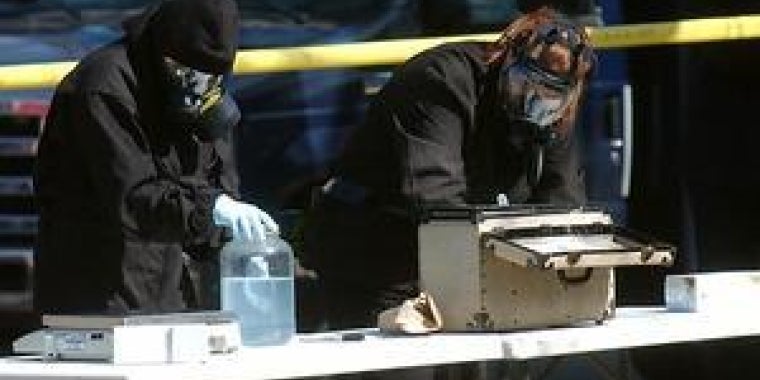
O'Mara's legislation targets meth labs
Thomas F. O'Mara
February 25, 2015
-
ISSUE:
- Controlled Substances

Elmira, N.Y.—State Senator Tom O’Mara (R,C-Big Flats) is continuing to urge the Legislature to crack down on clandestine methamphetamine labs locally and across the state, and has reintroduced legislation to significantly increase the criminal penalties for manufacturing meth.
The Senate has approved O’Mara’s proposal for the past few years, including last year when it was approved with strong bipartisan support by a vote of 55 to 4.
If enacted into law in 2015, O’Mara’s legislation (S.1440) would increase the criminal penalties for the possession of meth manufacturing material and the unlawful manufacture of meth, implementing a series of increasingly severe felony offenses.
“Meth labs continue to pose unacceptable risks to our neighborhoods, threaten the safety of police officers and first responders, and burden local systems of health care, criminal justice and social services,” said O’Mara, who also continues to serve as a member of the Senate Task Force on Heroin and Opioid Addiction. “The only byproducts of meth are addiction, tragedy and violence.”
[Read more in today's Star-Gazette, and The Leader]
O’Mara has highlighted the increasing frequency of meth-related arrests and other incidents across the Southern Tier and Finger Lakes regions over the past few years as the impetus for imposing stricter criminal penalties for possessing the material to make or for manufacturing the dangerous and highly addictive drug. The measure includes a provision making it a Class A-1 felony, punishable by a maximum sentence of 20 years in prison, for criminals convicted of operating a meth lab for the second time in five years. That’s currently a Class B felony that carries a maximum prison sentence of nine years. The legislation also establishes the crime of manufacturing meth in the presence of a child under the age of 16 as a Class B felony. The possession of methamphetamine manufacturing material in the first degree would increase from a Class E to a Class D felony, punishable by up to two-and-a-half years in prison.
O’Mara stressed that cooking meth involves the use of highly explosive, flammable and toxic chemicals, and meth labs pose a significant public health and safety threat, especially to young children and especially if they’re located in residential neighborhoods. According to the United States Department of Justice, methamphetamine is one of the nation's greatest drug threats. A department report last year noted that the drug is at its highest levels of availability and purity -- and lowest cost -- since 2005. That's attributed to rising Mexican imports, but also because of the increased small-scale domestic production that’s targeted by O’Mara’s legislation.



